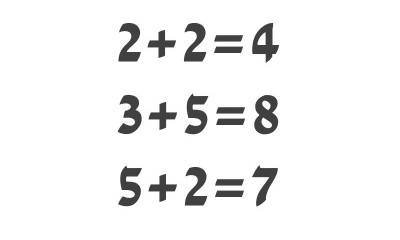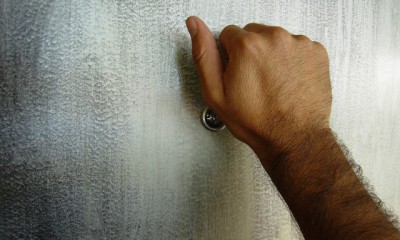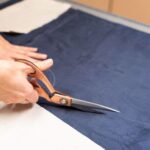Russian verbs used with the Accusative
The list of common Russian verbs often used with the Accusative case.
Some of the verbs take the Accusative case without any preposition, others require a preposition in front of the noun or a pronoun to be used with the Accusative case.
Please note that not all of the given examples illustrate the use of the Accusative case with the verbs.
Learn more about the Accusative case here.
to snack, to have a bite; to bite through
to think out, to devise, to contrive, to invent
-
Не жела́я признава́ть реа́льного положе́ния веще́й, расстра́иваться и напряга́ться, мы ча́сто начина́ем приду́мывать оправда́ния ситуа́ции.
nye zhee-lá-ya preez-na-vát' ree-ál'-na-va pa-la-zhé-nee-ya vee-schyeî, ras-trá-ee-va-tsa ee na-pree-gá-tsa, my chás-ta na-chee-ná-eem pree-dú-my-vat' ap-rav-dá-nee-ya see-tu-á-tsee-ee
Not wanting to admit the real state of things, to get upset and tensed, we often begin to come up with excuses for the situation.
to cut out again; to remake, to reshape
сut into pieces for sewing something; (figuratively) specially adapt
to lay together, to put together; to pile up, to heap, to stack; to pack; (math.) to add, to sum up; to fold (up)
to understand, to grasp, to realize, to figure out
-
Живя́ в состоя́нии постоя́нного стре́сса, неудиви́тельно, что ско́ро они́ ста́ли огрыза́ться друг на дру́га.
zhee-vyá f sas-ta-yá-nee-ee pas-ta-yán-na-va stré-sa, nee-u-dee-vée-teel'-na, chto skó-ra a-nee stá-lee ag-ry-zá-tsa druk na drú-ga
Living in a state of constant stress, it is not surprising that they soon began to snap at each other.
to make, to produce, to manufacture
-
Почти́ все предме́ты крестья́нской оде́жды изгота́вливали самостоя́тельно в своём хозя́йстве.
pach-tée fsye preed-myé-ty kreest'-yáns-kaî a-dyézh-dy eez-ga-táv-lee-va-lee sa-ma-sta-yá-teel'-na f sva-yóm ha-zyáîst-vyé
Almost all the items of peasant clothes were made independently in their household.
to make up (for); to catch up (with)
-
Вско́ре он насто́лько отста́л и́з-за пропу́щенных заня́тий, что лиши́лся наде́жды наверста́ть упу́щенное.
fskó-rye on na-stól'-ka ats-tál éez-za pra-pú-scheen-nyh za-nyá-teeî, chto lee-shéel-sya na-dyézh-dy na-veers-tát' u-pú-scheen-na-ye
Soon he was so behind due to missed classes that he lost hope of making up for lost time.
to tame, to domesticate
-
Лю́ди приручи́ли лошаде́й в глубо́кой дре́вности и с тех пор не перестаю́т испо́льзовать их в са́мых разли́чных областя́х свое́й жи́зни.
lyú-dee pree-ru-chée-lee la-sha-dyéî v glu-bó-kaî dryév-nas-tee ee s tyeh por nye pee-ree-sta-yút ees-pól'-za-vat' eeh f sá-myh raz-léech-nyh ab-las-tyáh sva-yéî zheez-nee
People tamed horses in ancient times and since then have not ceased to use them in various areas of their lives.
-
 Arts and crafts
Arts and crafts
26 words
-
 Basic Russian
Basic Russian
80 words
-
 Birds in Russian
Birds in Russian
9 words
-
 Body parts in Russian
Body parts in Russian
38 words
-
 Business Russian
Business Russian
17 words
-
 Calling names
Calling names
26 words
-
 Car and its parts
Car and its parts
12 words
-
 Character
Character
78 words
-
 Chores and housework
Chores and housework
28 words
-
 Christmas and New Year
Christmas and New Year
13 words
-
 Clothes
Clothes
23 words
-
 Colors
Colors
19 words
-
 Computers and internet
Computers and internet
13 words
-
 Cooking
Cooking
22 words
-
 Cosmos
Cosmos
7 words
-
 Crime and Punishment
Crime and Punishment
20 words
-
 Daily actions in Russian
Daily actions in Russian
80 words
-
 Describing people in Russian
Describing people in Russian
20 words
-
 Directions
Directions
11 words
-
 Easy Russian
Easy Russian
47 words
-
 Eating in Russian
Eating in Russian
33 words
-
 Emotions in Russian
Emotions in Russian
83 words
-
 Epithets
Epithets
57 words
-
 Face expressions
Face expressions
7 words
-
 Family in Russian
Family in Russian
20 words
-
 Food in Russian
Food in Russian
32 words
-
 Furniture
Furniture
11 words
-
 Gardening
Gardening
27 words
-
 Grooming
Grooming
15 words
-
 Hard Russian words
Hard Russian words
15 words
-
 Health
Health
36 words
-
 Hobbies and activities
Hobbies and activities
33 words
-
 Holidays and celebrations
Holidays and celebrations
25 words
-
 House and apartment
House and apartment
45 words
-
 Introductory words and questions
Introductory words and questions
10 words
-
 Love and marriage
Love and marriage
45 words
-
 Math in Russian
Math in Russian
28 words
-
 Money and prosperity
Money and prosperity
20 words
-
 Most common Russian verbs
Most common Russian verbs
31 words
-
 Most common Russian words
Most common Russian words
22 words
-
 Nature in Russian
Nature in Russian
34 words
-
 Physical qualities
Physical qualities
39 words
-
 Places in Russian
Places in Russian
12 words
-
Professions
5 words
-
 Random Russian words
Random Russian words
144 words
-
 Relationships
Relationships
173 words
-
 Russian expressions
Russian expressions
72 words
-
 Russian slang
Russian slang
13 words
-
 Shopping in Russian
Shopping in Russian
42 words
-
 Simple movements
Simple movements
66 words
-
 Sounds
Sounds
9 words
-
 Spirituality
Spirituality
6 words
-
 Sport in Russian
Sport in Russian
34 words
-
 Studies
Studies
43 words
-
 Symbols of Russia
Symbols of Russia
16 words
-
 Tastes
Tastes
13 words
-
 Things around us
Things around us
24 words
-
 Time
Time
31 words
-
 Tools in Russian
Tools in Russian
9 words
-
 Transport
Transport
30 words
-
 Travel
Travel
22 words
-
 Verbs of motion
Verbs of motion
17 words
-
 Weather in Russian
Weather in Russian
25 words
-
 Work
Work
57 words
Survival Russian
Start learning Russian with this essential vocabulary that will help you to remove the first bricks from your language barrier.
Russian words for beginners
Essential Russian words and phrases for those who already started but still need to catch up a lot of vocabulary.
Intermediate Russian
Russian words and expressions for those who already speak a little Russian and want to have smoother Russian conversations.
Advanced Russian
Russian words and phrases for those who already speak Russian good enough to want to sound like a native speaker.












